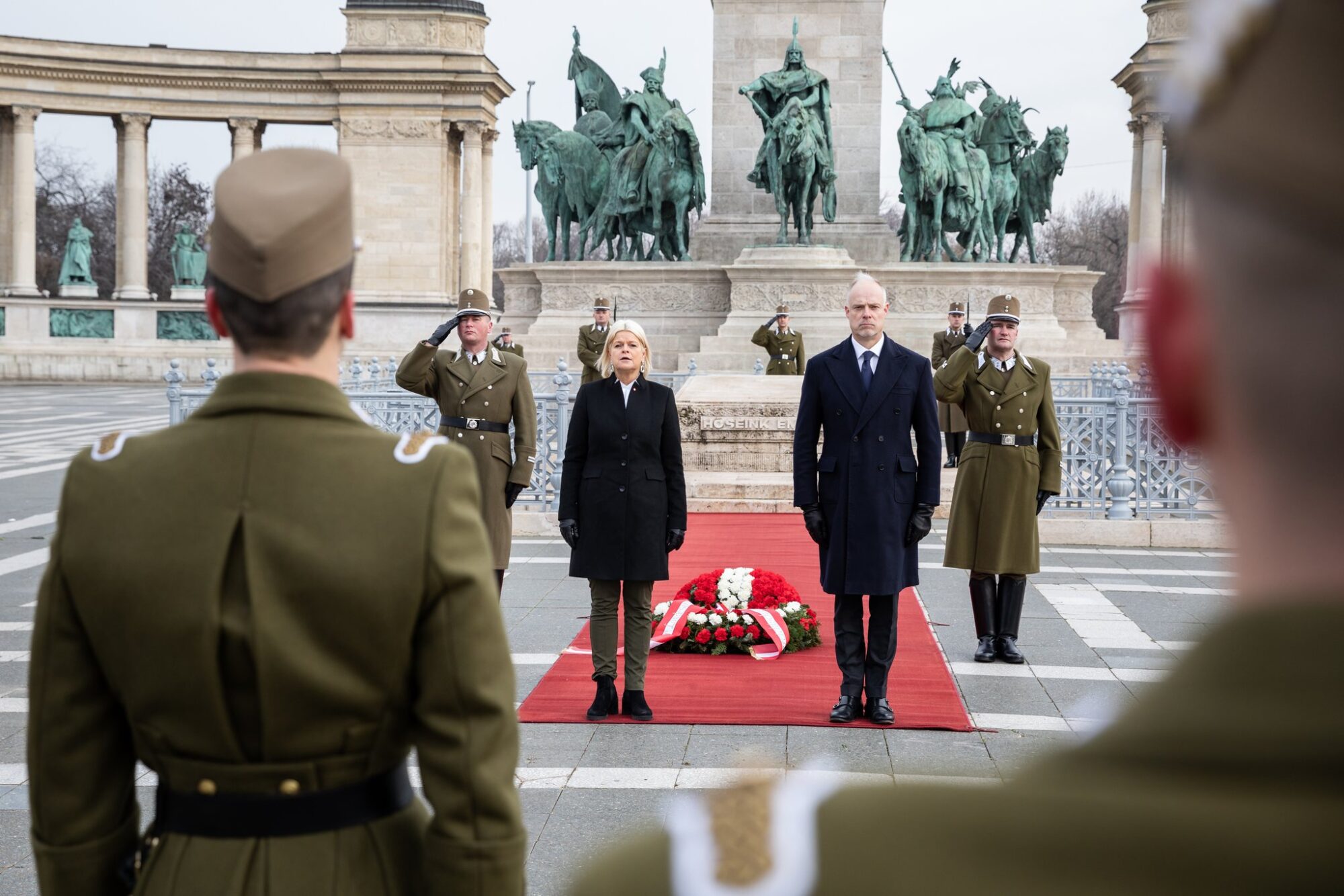
Austrian Defense Minister Klaudia Tanner Hungarian Defense Minister Kristóf Szalay-Bobrovniczky in Budapest.
After meeting in Budapest on Monday, January 30th, Austrian and Hungarian defense ministers agreed to not ship weapons to Ukraine in order to avoid further escalation, Euractiv reported.
At the press conference held by Austrian Defense Minister Klaudia Tanner and her Hungarian counterpart, Kristóf Szalay-Bobrovniczky, in Budapest, the parties stressed that their countries are “on the side of peace” when it comes to the war in Ukraine, pledging to remain in close cooperation, the most crucial thing in times of rising security challenges.
Shared history, shared present.
— Kristóf Szalay-Bobrovniczky (@SzBobrovniczky) January 30, 2023
🇦🇹🇭🇺
We have common views regarding #security issues as well.
We both agree on avoiding escalation in #UkraineRussiaWar, and we can rely on each other regarding the security in the #WB.
Great discussions with HE Tanner!#MoDs #WeAreNato pic.twitter.com/LXffy3OG0G
“We have traditionally been good neighbors with Austria, and our cooperation is very close in almost all areas, including military defense,” said the Hungarian defense minister. He told reporters that their meeting addressed the issues of common European security threats, NATO enlargement, military modernization, and weapons shipments to Ukraine.
As a historically neutral country since 1955, Austria held back on supplying lethal weapons to Ukraine, sending only protective equipment and fuel so far, and intends to preserve its neutral stance throughout the conflict. Hungary, on the other hand, is a member of NATO but has been consistently refusing to join the others in the organization in providing ammunition, artillery, and tanks to Ukraine, nor does it let others’ shipments pass through the country. Despite being adamant about not sending arms, Hungary did supply loads of humanitarian aid to its eastern neighbor and admitted over two million Ukrainian refugees (most of whom traveled further west).
The representatives of Budapest and Vienna chose to reinforce their position on arms shipments for the same reason, to avoid further escalation and Europe’s potential involvement in the war. They believe that by providing unlimited weapons to Ukraine, the West already acts as if it was a belligerent party in the conflict, risking Russian retaliation. Instead of prolonging the conflict through endless arms shipments, Hungary repeatedly called for an immediate ceasefire and the beginning of peace negotiations involving Western powers.
At the press conference, Tanner made clear that the greatest danger the continent faces today is the potential spill-over of the Ukrainian war into Europe—not only in the form of conventional warfare but also as “an interplay with hybrid warfare and an increase in migration in general.”
Illegal immigration is also an issue on which the two countries have been cooperating more closely recently. Last October, the leaders of Hungary, Austria, and Serbia held a three-country summit in Budapest (to be repeated in Belgrade and Vienna later), where they laid the groundwork for a joint action plan to limit and eventually stop illegal migration through their borders.
